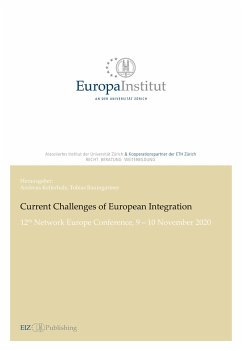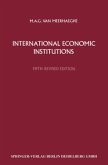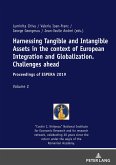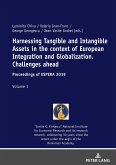Crises are not a new phenomenon in the context of European integration. Additional integration steps could often only be achieved under the pressure of crises. In recent times, however, the EU is characterised by multiple crises, the integration process as a whole is sometimes being questioned. In 2015, the crisis in the eurozone had escalated to such an extent that for the first time a member state was threatened to leave the eurozone. Furthermore, the massive influx of refugees into the EU has revealed the shortcomings of the Schengen area and the common asylum policy. Finally, with the majority vote of the British in the referendum of 23 June 2016 in favour of the Brexit, the withdrawal of a member state became a reality for the first time. Against this background, the twelfth Network Europe conference included talks on the numerous challenges and future integration scenarios in Europe. This publication comprises all conference contributions.
Bitte wählen Sie Ihr Anliegen aus.
Rechnungen
Retourenschein anfordern
Bestellstatus
Storno








